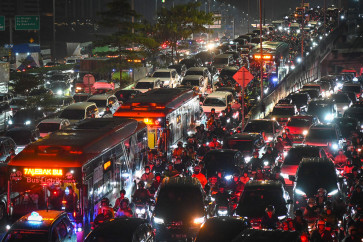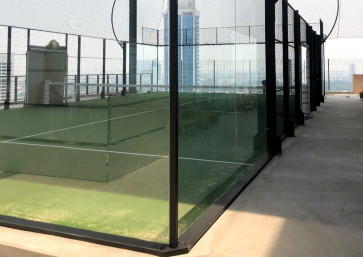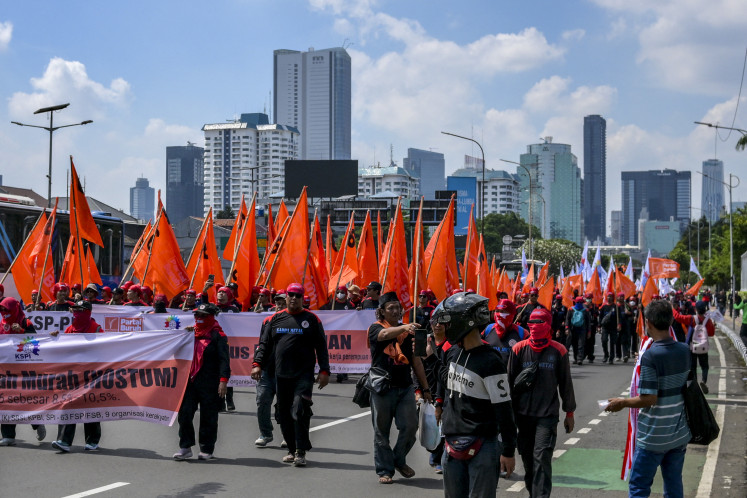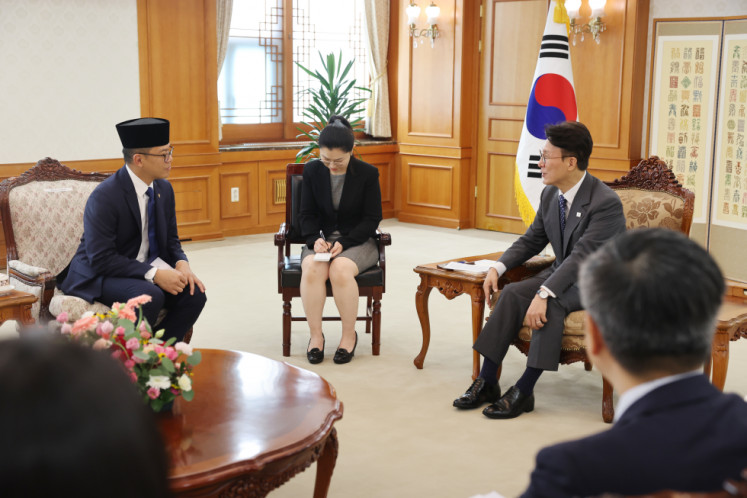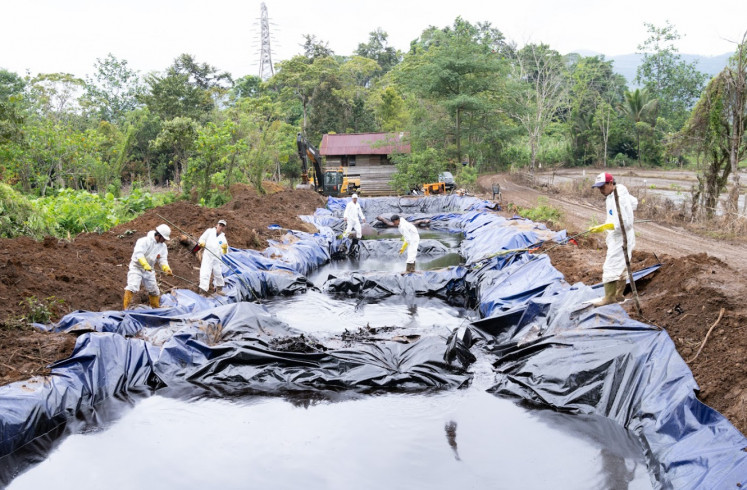Popular Reads
Top Results
Can't find what you're looking for?
View all search resultsPopular Reads
Top Results
Can't find what you're looking for?
View all search resultsRI hosts talks on Indo-Pacific
Amid various strategies and interpretations on the Indo-Pacific developed by countries in the region, Indonesia held a first meeting to urge governments to talk openly about their plans for cooperation
Change text size
Gift Premium Articles
to Anyone
A
mid various strategies and interpretations on the Indo-Pacific developed by countries in the region, Indonesia held a first meeting to urge governments to talk openly about their plans for cooperation.
The Foreign Ministry held a high-level dialogue on Indo-Pacific cooperation on Wednesday, inviting representatives from 18 East Asia Summit (EAS) members to have an open discussion about the evolving Indo-Pacific concept.
As an ASEAN initiative, the EAS consists of the 10 ASEAN member states as well as Australia, China, India, Japan, New Zealand, South Korea, Russia and the United States.
“This is the first meeting where the 18 countries can meet, sit together and discuss openly the Indo-Pacific concept, and [this meeting] is already an achievement,” Foreign Minister Retno LP Marsudi told reporters after wrapping up the meeting.
The term “Indo-Pacific” has gained ground in recent years, with world leaders having used it to express their interest in a regional order straddling the Indian and Pacific oceans.
Many countries in the region have developed their own concepts, such as India’s Act East Policy, Japan’s and the US’ Free and Open Indo-Pacific Strategy as well as Australia’s Foreign Policy White Paper. Other countries have set their eyes on the region — for instance, China with its Belt and Road Initiative and South Korea with its Look South Policy.
At the forum on Wednesday, Retno asked the delegation heads to share their visions on the Indo-Pacific.
“Moreover, I asked them to deliver their key elements and principles for the development of Indo-Pacific cooperation. I also told them that [this meeting] is where we start exchanging views about potential cooperation [on an Indo-Pacific concept],” she said.
Retno said that countries attending the meeting agreed, in principle, to explore options for Indo-Pacific cooperation in three areas Indonesia had proposed: the Sustainable Development Goals (SDGs), maritime cooperation as well as connectivity and infrastructure.
Vice President Jusuf Kalla said Indo-Pacific cooperation should contribute to global causes, including the SDGs, by 2030.
“For Indonesia, our concept of Indo-Pacific cooperation is one based on inclusiveness, transparency, promotion of concrete cooperation and a habit of dialogue as well as respect for international law,” he added.
Indonesia has been pushing for ASEAN to have its own stance on the Indo-Pacific region, as the bloc is currently working to finalize what it calls “ASEAN’s Indo-Pacific outlook”.
Indonesia has been proposing to discuss an ASEAN-led Indo-Pacific regional architecture at the EAS, because it consisted of the 10 ASEAN member states and other countries with interests in the region.
Retno said the outlook would be completed soon, and Thailand, through its ASEAN chairmanship, had played a great part in helping accelerate the process.
Australian Foreign Minister Marise Payne said Australia supported Indonesia’s approach for the Indo-Pacific: openness, transparency, inclusiveness, a regulatory framework, respect for international law, sovereignty and the centrality of ASEAN.
“These principles have a long history in ASEAN, and many have been drawn into the Treaty of Amity and Cooperation, where, proudly, Australia is a signatory country,” she said in a statement.
The US State Department’s principal deputy assistant secretary for East Asian and Pacific affairs, W. Patrick Murphy, said there were many common principles in approaching the region.
“Many of the voices today, including our voice from the US, emphasize the importance of ASEAN centrality, and that means a multilateral architecture in the region that is built upon ASEAN enjoys our full support,” he said.


